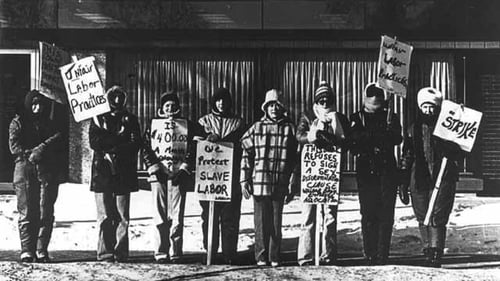
Director
Documentary portrays the saga of how Italian Americans went from being outsiders who were stereotyped as gangsters in American movies to insiders in Hollywood who took control of their own stories. Interviews, film clips and home movies from Italian American filmmakers highlight personal experiences and comment on Hollywood's politics and cultural impact.

Producer
Before and during the Second World War, Jewish intellectuals and scholars who escaped Nazi Germany and immigrated to the U.S. faced an uncertain future. Confronted with anti-Semitism at major universities and a public distrust of foreigners, a surprising number secured teaching positions at traditionally Black colleges in the segregated South. In many cases they formed lasting relationships with their students and had an important impact on the communities in which they lived and worked. This is a story of two cultures, each sharing a burden of oppression, brought together by the tragic circumstances of war. The film also highlights the role of African Americans such as Ralph Bunche in securing positions for these refugee scholars at places like Howard University, Tougaloo College and Hampton Institute.

Producer
Providing behind the scenes footage of the director on set with clips from his own films, Martin Scorsese Directs depicts to riveting effect the way Scorsese brings the written story to life on the big screen. Additional interviews with the likes of Joe Pesci, Harvey Keitel, Thelma Schoonmaker, the director’s own parents, and others build a perception of Scorsese that not everybody knows.

Director
Providing behind the scenes footage of the director on set with clips from his own films, Martin Scorsese Directs depicts to riveting effect the way Scorsese brings the written story to life on the big screen. Additional interviews with the likes of Joe Pesci, Harvey Keitel, Thelma Schoonmaker, the director’s own parents, and others build a perception of Scorsese that not everybody knows.

Director
A colorful and provocative survey of anarchism in America, the film attempts to dispel popular misconceptions and trace the historical development of the movement. The film explores the movement both as a native American philosophy stemming from 19th century American traditions of individualism, and as a foreign ideology brought to America by immigrants. The film features rare archival footage and interviews with significant personalities in anarchist history including Murray Boochkin and Karl Hess, and also live performance footage of the Dead Kennedys.

Sound
Risking jobs, friends, family and the opposition of church and community, eight unassuming women begin the longest bank strike in American history.

Producer
This documentary traces the history of the Yiddish anarchist newspaper that published it’s final issue after 87 years—as told by it’s now elderly, but decidedly unbowed staff.

Director
This documentary traces the history of the Yiddish anarchist newspaper that published it’s final issue after 87 years—as told by it’s now elderly, but decidedly unbowed staff.

Director
Examining the case of Martin Sostre, a black Puerto Rican bookstore owner in Buffalo, New York who was framed on drug possession charges in 1967 and sentenced to prison, this film shows how the American justice system can be abused for purposes of political repression.

Director
An investigative (but frequently humorous) documentary on the surveillance activities of the New York City Police Department's Bureau of Special Services, known as the Red Squad. "An extraordinary political film, in which the spies - Red Squad and undercover police assigned to infiltrate the American Left - are in turn spied upon. The result: a photographic exposé of faces and agents in action, fully identified by name and title."
- Amos Vogel, Film as a Subversive Art









